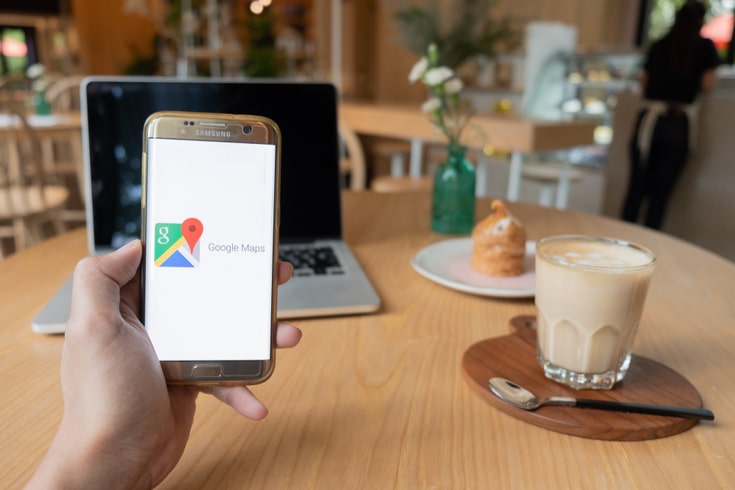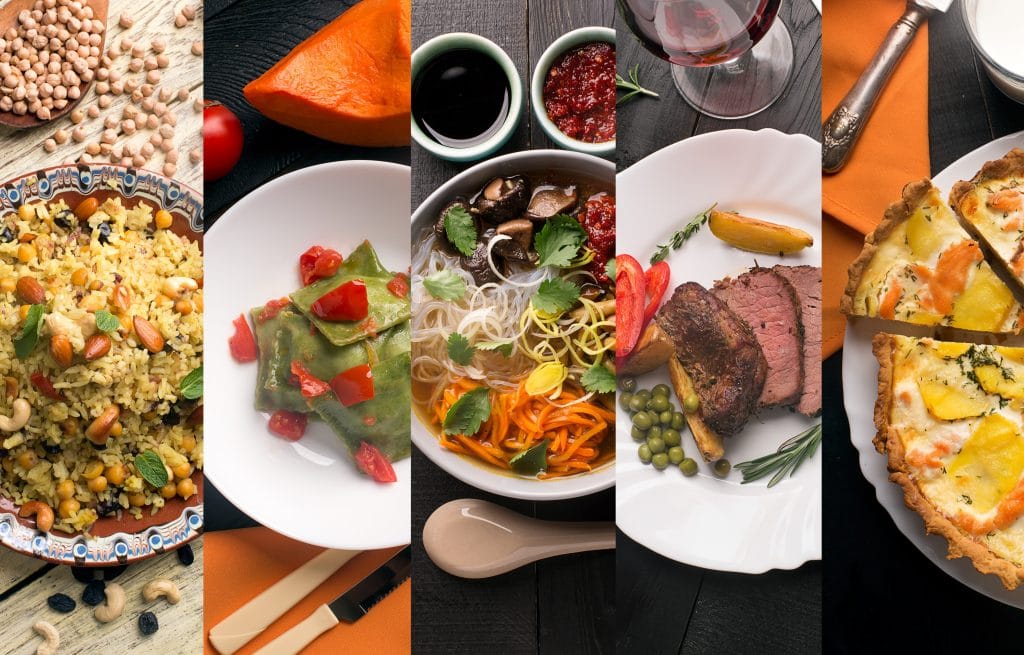Are Cooking Recipes Protected by Copyright When Publishing a Cooking Video on YouTube?
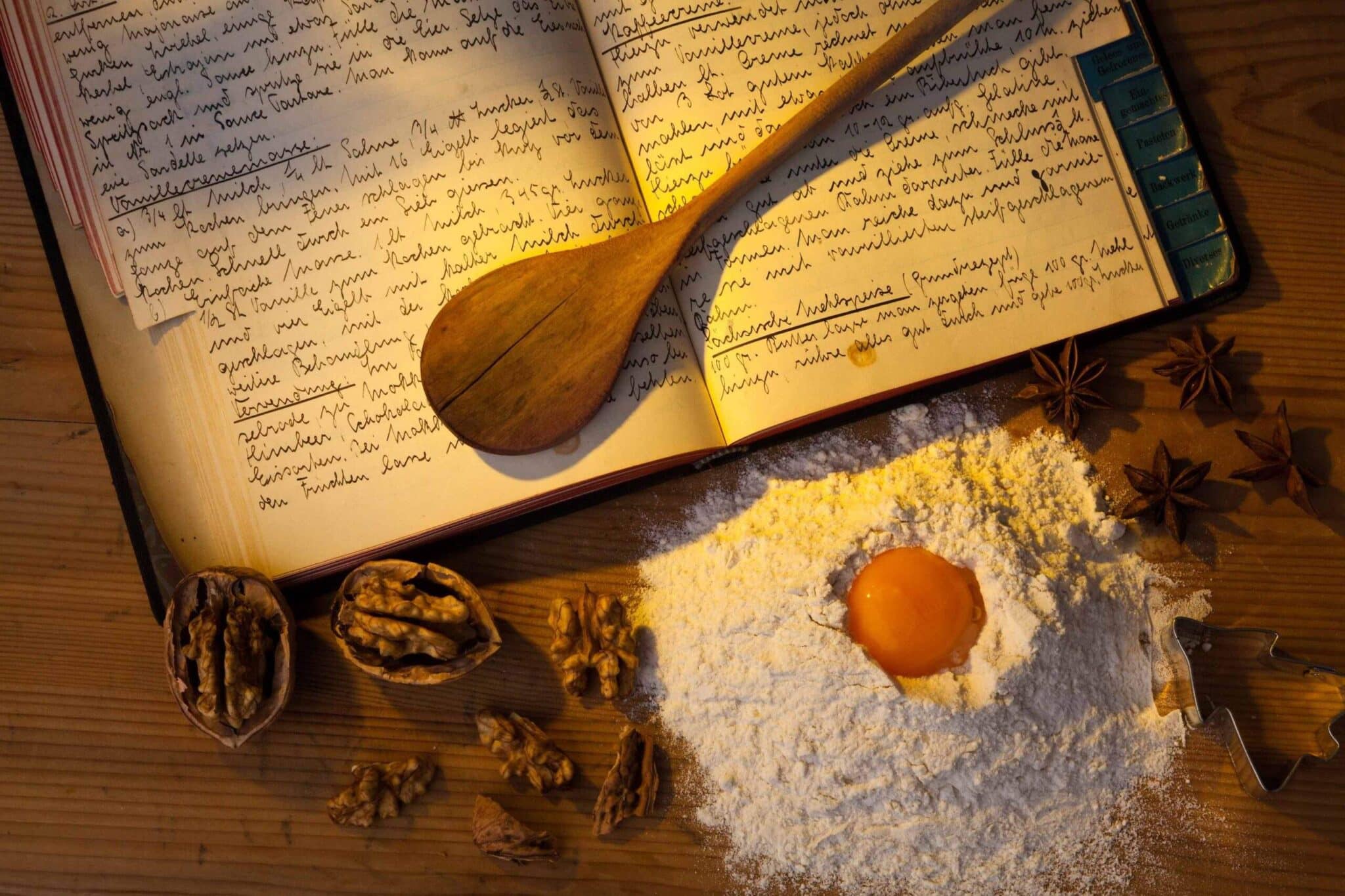
On YouTube, a variety of videos are posted daily, among which cooking videos are one of the popular genres. There are various types of cooking videos, some of which introduce recipes or plate arrangement examples within the video. Even for those who are not familiar with law, it is somewhat imaginable that copyright issues can arise in the case of illustrations or music. However, there are also situations where copyright becomes an issue with cooking videos.
Therefore, in this article, we will explain the copyright issues that should be taken into account when publishing cooking videos on YouTube, focusing on the copyright of cooking recipes.
Can Copyright Be Granted to a Cooking Recipe?
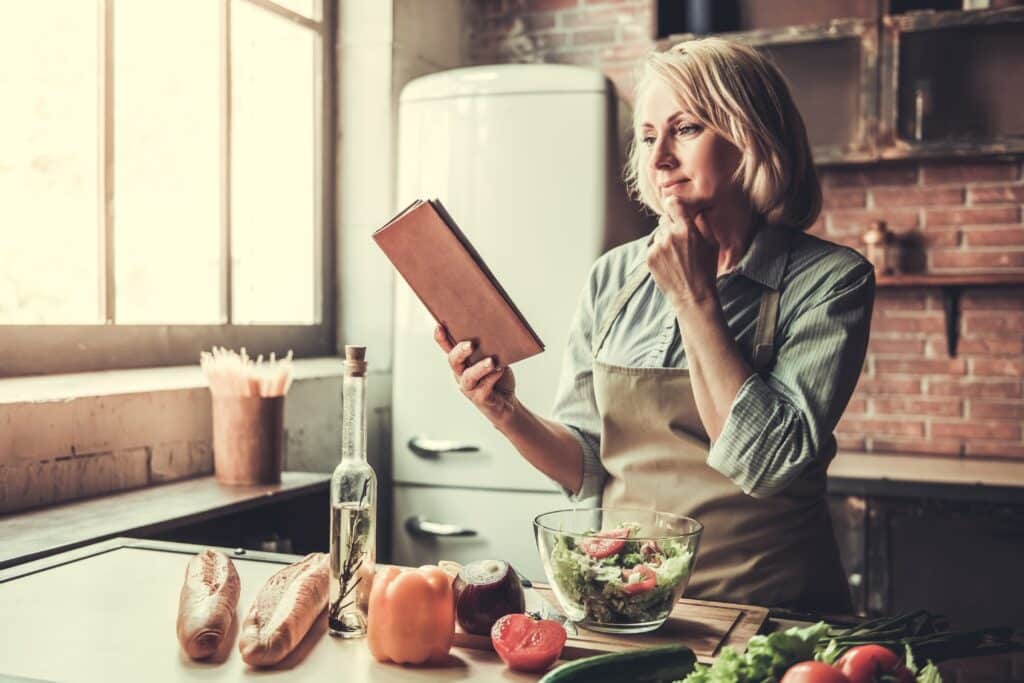
When posting cooking videos on YouTube, there are cases where you create a dish with an original recipe and post the cooking video. However, there are also cases where you cook using a recipe thought up by a third party and post the video on YouTube. The question here is whether copyright is granted to the recipe thought up by a third party, and whether introducing the recipe in a video without permission infringes on the copyright of the third party’s recipe. Therefore, we will first explain whether copyright can be granted to a cooking recipe.
When is Copyright Granted?
Many people have heard of the right called “copyright,” which refers to the rights granted to the author of a work. Copyright naturally arises under the law at the time of creation, without any procedures such as registration. Because copyright does not require any special procedures to be recognized under the law, it is called a non-formalistic system. And regarding works, Article 2, Paragraph 1, Item 1 of the Japanese Copyright Law (著作権法) stipulates as follows:
(Definition)
Japanese Copyright Law Article 2, Paragraph 1, Item 1
Article 2 In this Act, the meanings of the terms set forth in the following items are as prescribed respectively in those items:
1. a “work” means a creatively produced expression of thoughts or sentiments that falls within the literary, academic, artistic, or musical domain
From this Article 2, Paragraph 1, Item 1 of the Japanese Copyright Law, not all creations are considered “works” under the Copyright Law. To be recognized as a work, it must be something that creatively expresses thoughts or feelings and can be said to belong to the realm of literature, academia, art, or music.
Specific Consideration of Copyright for Cooking Recipes
So, can a cooking recipe be considered a “work” under the Japanese Copyright Law? Let’s consider the example of a hamburger recipe. First, suppose you come up with an original hamburger recipe. At this stage, the hamburger recipe exists only in your mind, a state referred to as an idea. If the hamburger recipe remains in the state of an idea, it cannot be said to be “something that creatively expresses thoughts or feelings” as stated in Article 2, Paragraph 1, Item 1 of the Japanese Copyright Law, and therefore, it is not recognized as a work.
Also, in the hamburger recipe, there are contents such as the amount of meat to be used, the type of meat, the ratio of meat mixture, the type of seasonings such as salt and pepper, the amount of seasoning, the timing of adding the seasoning, the method of forming the hamburger, the heat level, the heating time, and the heating method. These contents can be easily thought of by anyone as a hamburger recipe, so from this point as well, it cannot be said to be “something that creatively expresses thoughts or feelings,” and it is considered that it is not recognized as a work.
From the above, it can be concluded that cooking recipes themselves are not considered works under the Copyright Law in principle, and therefore, copyright is not granted.
Points to Note When Using Cooking Recipes in YouTube Videos
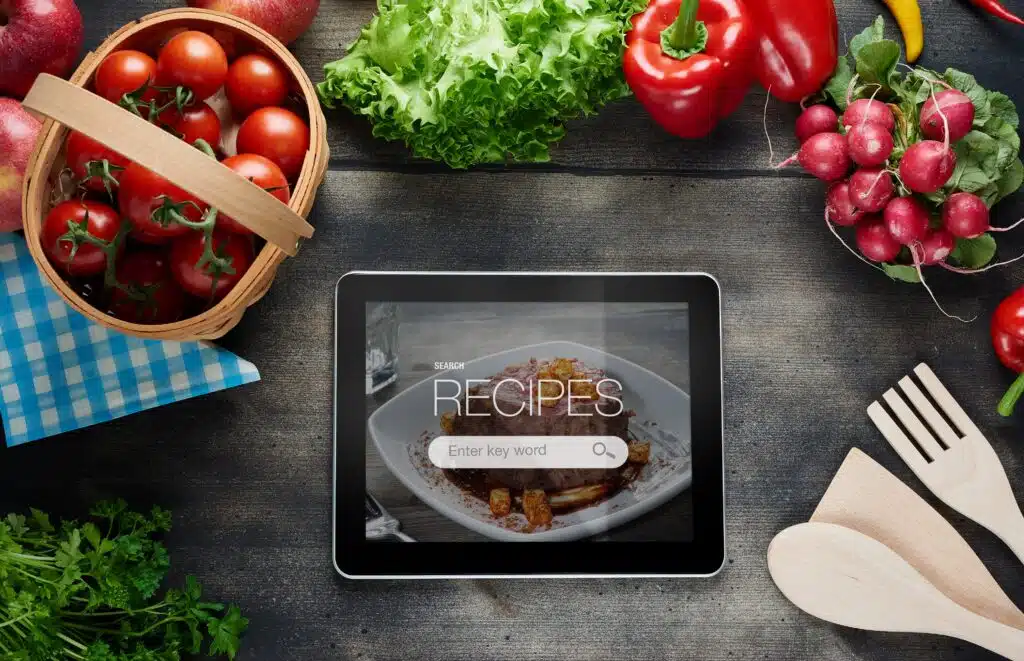
Despite the fact that copyright is not granted to cooking recipes themselves, it is not necessarily permissible to directly reproduce the contents of recipe books published by cooking experts or celebrities in YouTube videos. You may wonder why this is the case, given that copyright is not granted to cooking recipes. We will explain the reason why below.
Cooking recipe books are not composed solely of recipes. They often include the author’s unique recipes, the arrangement of text, the inclusion of photos and illustrations, and comments or columns by the author. These elements may be subject to copyright, and unauthorized reproduction could potentially violate copyright law. Therefore, when uploading cooking videos to YouTube, care must be taken not to infringe on copyright when using recipes from third-party cookbooks.
If you are referencing a third-party recipe, limit the scope of what you introduce in your YouTube video to the ingredients used and the basic recipe content. However, the safest approach is to obtain proper permission from the third party who introduced the cooking recipe, and then use the recipe in your YouTube video.
When are Cooking Recipes Protected?
We have previously mentioned that cooking recipes are generally not considered as copyrighted works. So, does this mean that cooking recipes are not protected at all? Even if we consider ways to legally protect cooking recipes outside of copyright law, such as through patents, it is difficult and legal protection is generally considered to be challenging. However, as previously mentioned, if the recipe is published in a cookbook, it may be protected as a copyrighted work. Also, if it is posted as text on a blog or similar, it may be recognized as a copyrighted work and potentially protected under the Japanese Copyright Law.
As mentioned above, there is a possibility of legal protection, but it is not absolute, and there are also areas that are not legally protected. Therefore, to protect cooking recipes, we should consider not only legal methods but also “practical methods” of protection.
Practical methods could include, for example, when posting a cooking recipe, requesting that anyone who uses the recipe to upload a YouTube video should contact the creator of the recipe, or asking them to include a link to the webpage where the recipe is posted in the description of the YouTube video. This method is merely a practical way to protect the cooking recipe, but by adopting such practical methods, it is expected that disputes between parties can be prevented.
Summary
So far, we have discussed the copyright issues related to cooking recipes that should be considered when publishing cooking videos on YouTube. Cooking videos are one of the most popular categories among YouTube videos, so there may be cases where your original cooking recipes are used by others, or you use recipes created by others. If you have a correct understanding of the copyright of cooking recipes, you can expect to avoid disputes between the parties involved. As mentioned in this article, cooking recipes may or may not be recognized as copyrighted works, so a professional perspective is required to judge their copyrightability. If you are unsure about whether a work is copyrightable, we recommend consulting with a legal expert such as a lawyer.
Category: Internet


